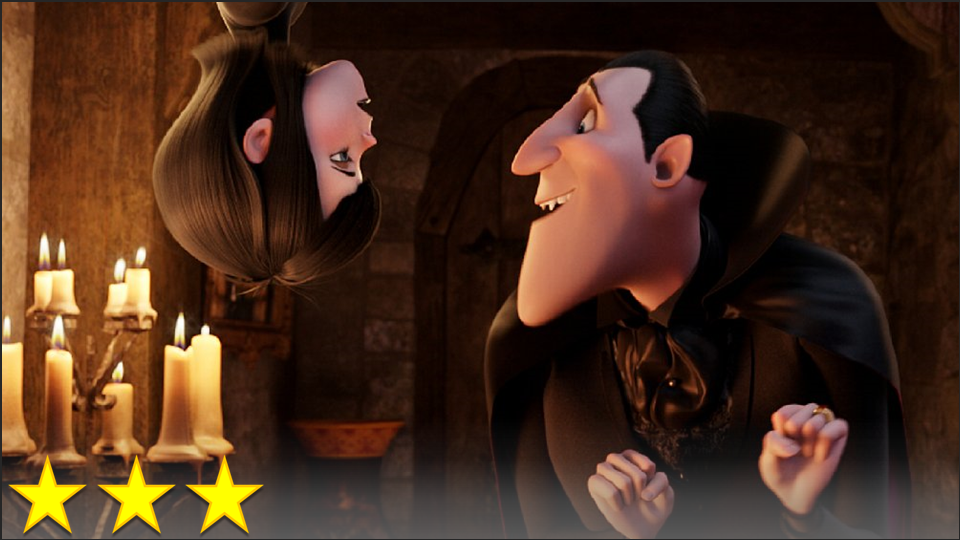This is the first of a few films I’m going to review this month that are at the very least passable on the grounds that, in spite of their clichés and shortcomings, they unfailingly hold a grip on my enjoyment simply by being so strangely interesting. Hotel Transylvania is, by all means, a stereotypical CG animated film, with shameless repetition of embarrassing tropes, as I can easily explain by summing up the film. An overprotective widowed father (see Finding Nemo) whose “innocently villainous” demeanor makes him a bizarre parental figure (see Despicable Me) lives in a world populated with monsters (see Monsters Inc.) and runs a hotel to provide solitude the legendary figures (the film’s primary, if not only, defining feature) in order to protect his daughter from the dangers of the outside world (see Tangled). The stupid teenage protagonist gets a crush on the girl who’s voiced by a pop star (see The Lorax) and finds that she wants her freedom (see Brave), and now the protagonist has to avoid being caught for deceiving everyone (see A Bug’s Life) while the couple hopes they can fulfill her dreams of going to paradise (see Up). This isn’t even mentioning the fact that it ends in a random musical number set to a pop song, making it even more reminiscent of Despicable Me, or the running gag concerning an awkward old lady doing something inappropriate while uttering a catchphrase with an odd accent, which in this case is the monster who eats things and says, “I dint do that,” but it’s basically “bad kitty” from Madagascar.
While the whole film feels too familiar, these are merely the ugly little details that fill the gaps between the beautiful experiences of seeing such great, strong characters trying to figure out how to handle the protagonist’s incredibly difficult situation whilst navigating through this frighteningly inventive world. The way that the characters – and other magical/mythical elements – are consistently used in ways I never would have considered. The movie is silly, smart, and surprising, which makes it a good family movie to share with anyone. I can almost forgive the horrendous cliché of the part when the loud party music comes to a halt just as someone is yelling something personal to someone else, creating a very “CG family film” scene that’s both awkward and sad. That being said, the only reason why that scene alone hasn’t earned this film a terrible rating from me is this: I already miss the film’s delightful characters, and I’m eager to join them again when the sequel arrives.





